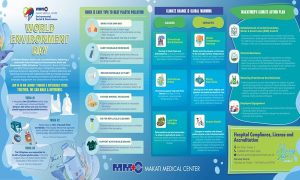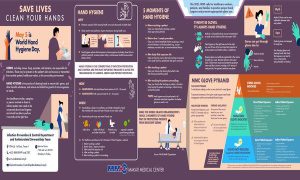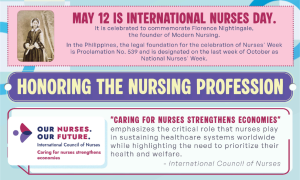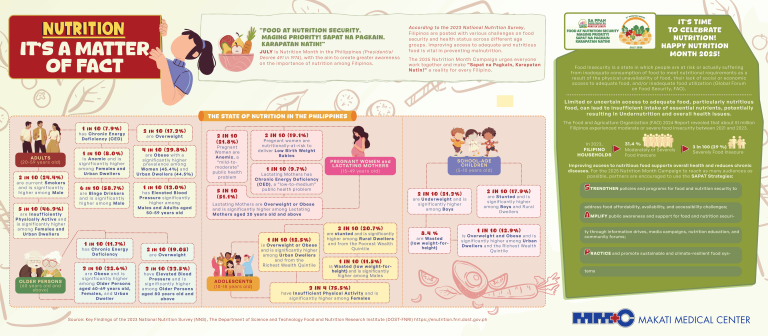As emerging variants of the COVID-19 virus continue to threaten the health and safety of many worldwide, vaccines are being rolled out more efficiently and carried through expanded priority groups to achieve herd immunity faster.
In the Philippines, at least 37.1 million doses of COVID vaccines have been administered so far, which translates to around 17.2% of the country’s population assuming every person needs two (2) doses. With still a long way to go, both the public and private sectors campaign for vaccination, encouraging everyone to get their shots as soon as they become available for them.
According to the World Health Organization (WHO) and Centers for Disease Control and Prevention (CDC), vaccination is recommended for people aged 12 years and up, particularly the Pfizer mRNA vaccine. Apart from those who are immunocompromised, this list also highlights pregnant and breastfeeding women. Read on to know some of the growing evidence that suggests COVID-19 vaccines are safe and effective when administered during pregnancy.
Are COVID-19 Vaccines Safe to Take During Pregnancy?
While the overall risk is low, pregnant women have an increased risk of contracting severe COVID-19 illnesses than non-pregnant women. These cases include serious symptoms that may require:
- Hospitalization
- Intensive care
- A ventilator or a special apparatus to aid in breathing
Furthermore, compared to pregnant women without COVID-19, those who test positive for the virus are at a greater risk of preterm birth and other adverse pregnancy complications.
With this demographic more vulnerable to critical COVID-19 illness, it now becomes crucial to vaccinate them.
To address concerns on safety and effectiveness for this group, a study published in The Journal of the American Medical Association (JAMA) Network Open concluded that “COVID-19 vaccines were well-tolerated among individuals who were pregnant, lactating, or planning pregnancy.”
Supporting this statement are researchers at Massachusetts General Hospital (MGH), Brigham and Women’s Hospital, and the Ragon Institute of MGH, MIT, and Harvard. Their cohort study shows that the new messenger ribonucleic acid (mRNA) COVID-19 vaccines effectively produce antibodies to fight off the virus in pregnant and lactating women.
COVID-19 Vaccine Guidelines During Pregnancy
Clinical investigations proving the success of COVID-19 vaccination during pregnancy are steadily increasing in number. To weigh out the benefits of a coronavirus vaccine for pregnant people, here is a list of guidelines to consider.
COVID-19 vaccines are recommended for pregnant and lactating women.
The WHO says they do not have any reason to believe that specific risks outweigh the benefits of vaccination for pregnant women. With this, many medical organizations and practitioners highly recommend Food and Drug Administration (FDA)-approved COVID-19 vaccines for pregnant and lactating individuals, including those trying to conceive.
Per Dr. Pat O’Brien, Vice President of the Royal College of Obstetricians and Gynaecologists (RCOG), over 200,000 pregnant women across the United States and the United Kingdom experience no safety concerns after getting mRNA vaccines, verifying that they are safe to use even during pregnancy.
COVID-19 vaccines are safe and effective at any stage of pregnancy.
There is no medical proof that delaying vaccination until after the first 12 weeks of pregnancy is necessary. In fact, reproductive health experts from the University of Chicago Medicine advise people to get vaccinated as soon as possible.
Since most COVID-19 vaccines come in two (2) doses, with the second dose given at different intervals after the first, RCOG further recommends that pregnant individuals complete their shots before giving birth or entering the third trimester when they are most prone to serious illnesses.
COVID-19 vaccines do not increase the risk of miscarriage.
A scientific report concluded that there is no heightened risk for first-trimester loss in pregnant people who received an mRNA COVID-19 vaccine before 20 weeks of pregnancy. Data from other global studies of 40,000 pregnant women also show that receiving the vaccine does not increase the risk of having adverse pregnancy outcomes.
COVID-19 vaccines do not alter one’s fertility.
Currently, there is no evidence that any COVID-19 vaccines create fertility problems for both men and women.
Confusion about this topic started on social media, with multiple false reports claiming that a COVID-19 shot causes a woman’s body to fight a specific spike protein that affects her fertility. A Pfizer vaccine test debunks this, with 23 volunteers in the study becoming pregnant after the trial.
COVID-19 vaccines have no side effects on the fetus or breast milk.
There are no medical records that reveal adverse effects in women and their babies from a COVID-19 vaccine. After all, vaccines do not contain live viruses, so being vaccinated does not pose risks to the baby. There is also no need to delay or discontinue breastfeeding after getting a dose.
It is important to remember that, with the vaccine injected into the arm, the body immediately absorbs the shot to stimulate and strengthen one’s immune response. Because it is easily degraded, it is extremely unlikely that any mRNA would get into the breast milk or fetus through the placenta. Thus, any COVID-19 vaccine and pregnancy are a safe combination.
COVID-19 vaccines work.
They say, “The best vaccine is the one that is available to you first.” To pregnant and non-pregnant individuals alike, all current vaccines approved for emergency use are proven effective in addressing COVID-19 symptoms and their severity.
Whichever brand it may be, these doses create a line of defense against the deadly virus that has been spreading worldwide for more than a year now.
Be Informed, Get Vaccinated
As new strains of COVID-19 infect a rising number of people, pregnant women, including those who live with them, need to take extra precautions to protect themselves and their unborn from the virus. It starts with being informed and getting vaccinated.
To help prevent the spread of the virus and hopefully return to the pre-pandemic life, continue to observe minimum health protocols set by the experts. For more COVID-19-related concerns and world-class healthcare services against other infectious diseases, reach out to Makati Medical Center today!











